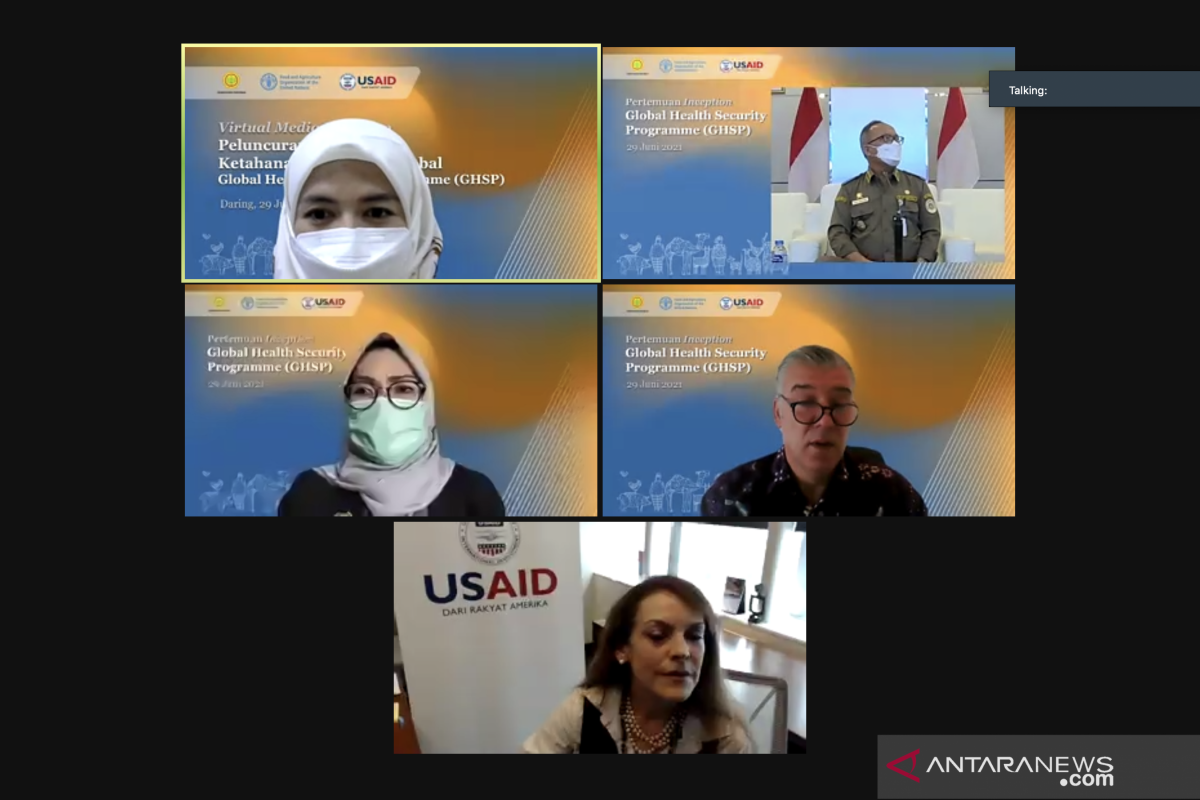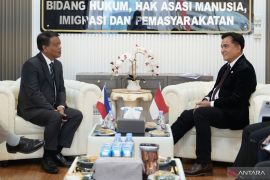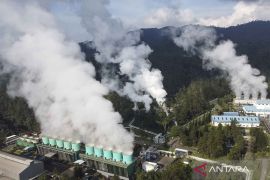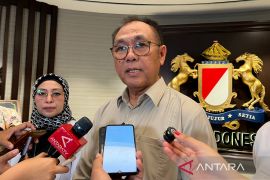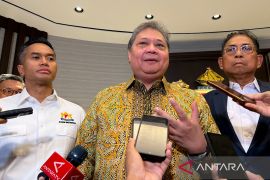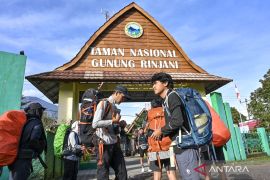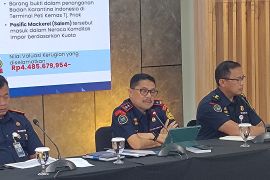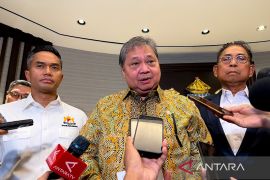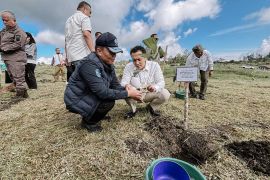I am optimistic of smooth synergy and harmonization in the implementation of the GHSP project along with other projects at the Ministry of Agriculture while ensuring good administrative aspects in planning, implementing, and reporting according to reJakarta (ANTARA) - The Indonesian Agriculture Ministry, in cooperation with the Food and Agriculture Organization (FAO), through the Emergency Center for Transboundary Animal Diseases (FAO ECTAD), launched a Global Health Security Programme (GHSP) targeted at averting future pandemics.
During the launch event held virtually on Tuesday, Secretary-General of the Ministry of Agriculture Kasdi Subagyono was upbeat about the program running in sync and harmony with the ministry's other programs.
“I am optimistic of smooth synergy and harmonization in the implementation of the GHSP project along with other projects at the Ministry of Agriculture while ensuring good administrative aspects in planning, implementing, and reporting according to regulations by adopting best practices and lessons learned from the experience of implementing previous projects,” Subagyono noted during the launch event accessed from Jakarta.
The program, also supported by the United States Agency for International Development (USAID), focuses on preventing threats of future pandemics related to zoonoses, which are diseases transmitted to humans from animals. Continued attention to animal diseases, in general, and zoonoses, in particular, remain a priority for governments around the world, including for Indonesia.
Along with 70 other nations, Indonesia is working to expedite political and multi-sectoral support for health security preparedness in a global initiative, termed the Global Health Security Agenda (GHSA), to keep the world safe from the threats of infectious diseases.
Meanwhile, Director General of Livestock and Animal Health Services from the Ministry of Agriculture, Nasrullah, noted that Indonesia is one of the leading nations in the Global Health Security Agenda and has been actively contributing as a member of the Steering Committee during the period from 2016 through to 2024.
Nasrullah affirmed that the president had also put the spotlight on Indonesia’s contribution to the global initiative.
Related news: World Food Day calls for solidarity, more resilient, robust systems
Related news: President Jokowi opens int`l conference on global health security
“This collaboration is expected to be able to prevent, detect early, and control emerging infectious diseases, especially those that threaten Indonesia's health and economy. Furthermore, this collaboration is expected to contribute to improving human health, food security, and livelihoods,” he stated.
The GHSP is a new platform building on a long history of collaboration between the Indonesian Ministry of Agriculture and FAO ECTAD-USAID in reducing pandemic risks.
The collaboration was prompted by the Highly Pathogenic Avian Influenza (HPAI) pandemic back in 2006, during which Indonesia had recorded the highest number of H5N1 bird flu cases worldwide, with the highest number of human fatalities until 2014.
Related news: US declares $3.5 million fund for Indonesia's vaccination endeavors
Related news: US committed to supporting vaccine response in Indonesia: envoy
While the number of cases of avian flu in humans had dipped considerably, the endemic situation of the H5N1 virus continues to pose a threat to the poultry industry and human health. Apart from bird flu, other high-impact zoonotic diseases, such as rabies and anthrax, continue to be an endemic in several parts of Indonesia.
Furthermore, FAO Representative ad interim to Indonesia, Richard Trenchard stressed on the importance of early detection of potential outbreaks, particularly reflecting on the current COVID-19 pandemic that has had enormous and devastating impacts and disrupted global food security and economies.
"As always, the FAO stands ready to work along with Indonesia to respond early and effectively," he affirmed.
Acting Deputy Mission Director for the USAID Indonesia Laura Gonzales further stated that the program will build on past successes and the lessons learned from responding to COVID-19 "to further hone Indonesia's zoonotic and infectious disease detection, preparedness, and response capabilities".
Related news: Central Java hospitals' occupancy rates reach precarious levels
Related news: Indonesian Child Commission applauds vaccination for children
Close
EDITED BY INE
Reporter: Aria Cindyara
Editor: Fardah Assegaf
Copyright © ANTARA 2021
